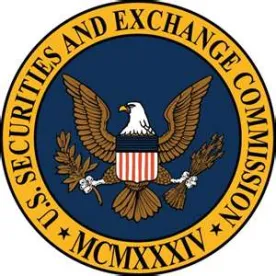Last week, the Securities and Exchange Commission (“SEC”) announced its first enforcement action1 against a company for using language in confidentiality agreements that the SEC concluded had the potential to stifle the whistleblower process established under the Dodd-Frank Wall Street Reform and Consumer Protection Act of 2010 (“Dodd-Frank Act”). Under the Dodd-Frank Act and subsequent SEC rulemaking, the SEC’s whistleblower program provides monetary incentives for individuals who report possible violations of the federal securities laws that result in successful SEC actions against companies with monetary sanctions exceeding $1 million. As a result of the recent SEC action, companies should review confidentiality restrictions in employment and other agreements to assess whether revisions may be advisable to conform with language deemed acceptable by the SEC.
In the action, the SEC targeted Houston-based global technology and engineering firm KBR, Inc., which it claimed violated an SEC whistleblower protection rule (Rule 21F-17 under the Securities Exchange Act of 1934, as amended), which prohibits persons from taking any action to impede whistleblowers from reporting possible securities law violations to the SEC, including enforcing, or threatening to enforce, a confidentiality agreement regarding such communications. KBR used a form confidentiality statement during internal investigations which contained language warning employees that they could face disciplinary action or termination if they discussed the internal investigation with outside parties without first obtaining approval from KBR’s legal department.
Even though the SEC noted that it was not aware of any instances in which (i) a KBR employee was in fact prevented from communicating directly with the SEC about potential securities laws violations or (ii) KBR took any action to enforce the confidentiality agreement’s restrictions, the SEC nonetheless determined that the language impedes employee communications by prohibiting discussing the interviews without pre-clearance from the KBR law department and because of the threat of disciplinary action or termination. Without admitting or denying the SEC’s findings, KBR agreed to amend its confidentiality statements to provide that nothing in the statement prohibits an employee from reporting possible violations of federal law or regulation to the SEC or any governmental agency or entity and to clarify that the employee does not need the prior authorization of KBR’s legal department before making any such disclosures. As part of its settlement with the SEC, KBR also agreed to pay a $130,000 penalty.
In light of the KBR action, companies should consider whether their confidentiality, employment, severance or other types of agreements contain restrictive language that would be objectionable. In the SEC press release announcing the action, SEC representatives warned that the SEC will “vigorously enforce” Rule 21F-17 and that “[o]ther employers should similarly review and amend existing and historical agreements that in word or effect stop their employees from reporting potential violations to the SEC.”
See “In the Matter of KBR, Inc.,” Release No. 34-74619 (April 1, 2015), which may be found at: http://www.sec.gov/litigation/admin/2015/34-74619.pdf. See also the related SEC press release, which may be found at: http://www.sec.gov/news/pressrelease/2015-54.html#.VSLX.



 />i
/>i

